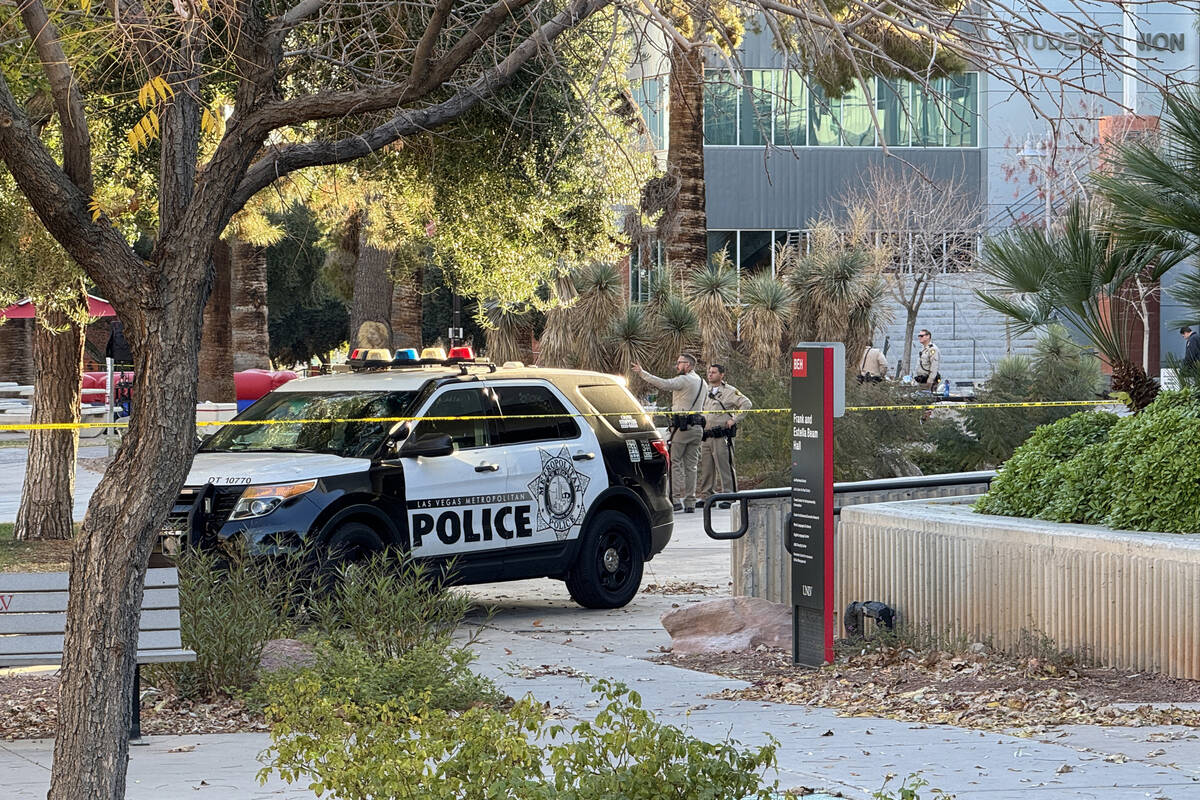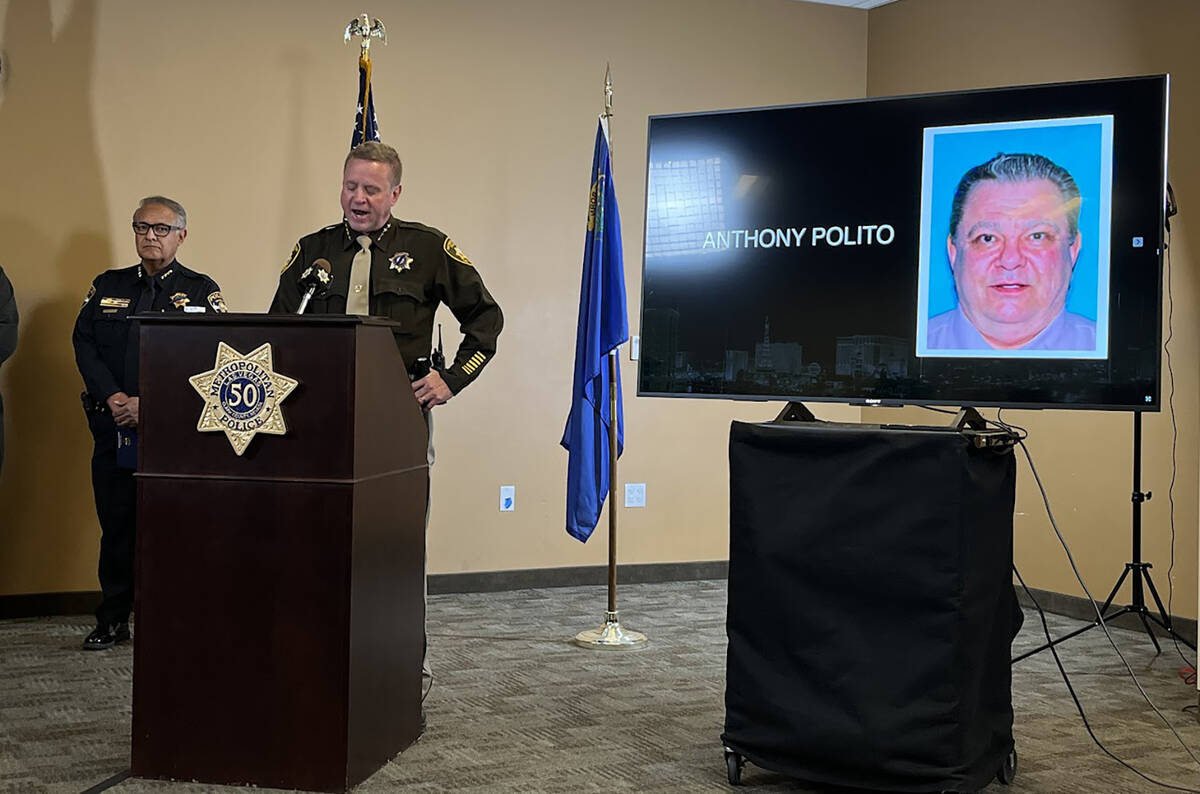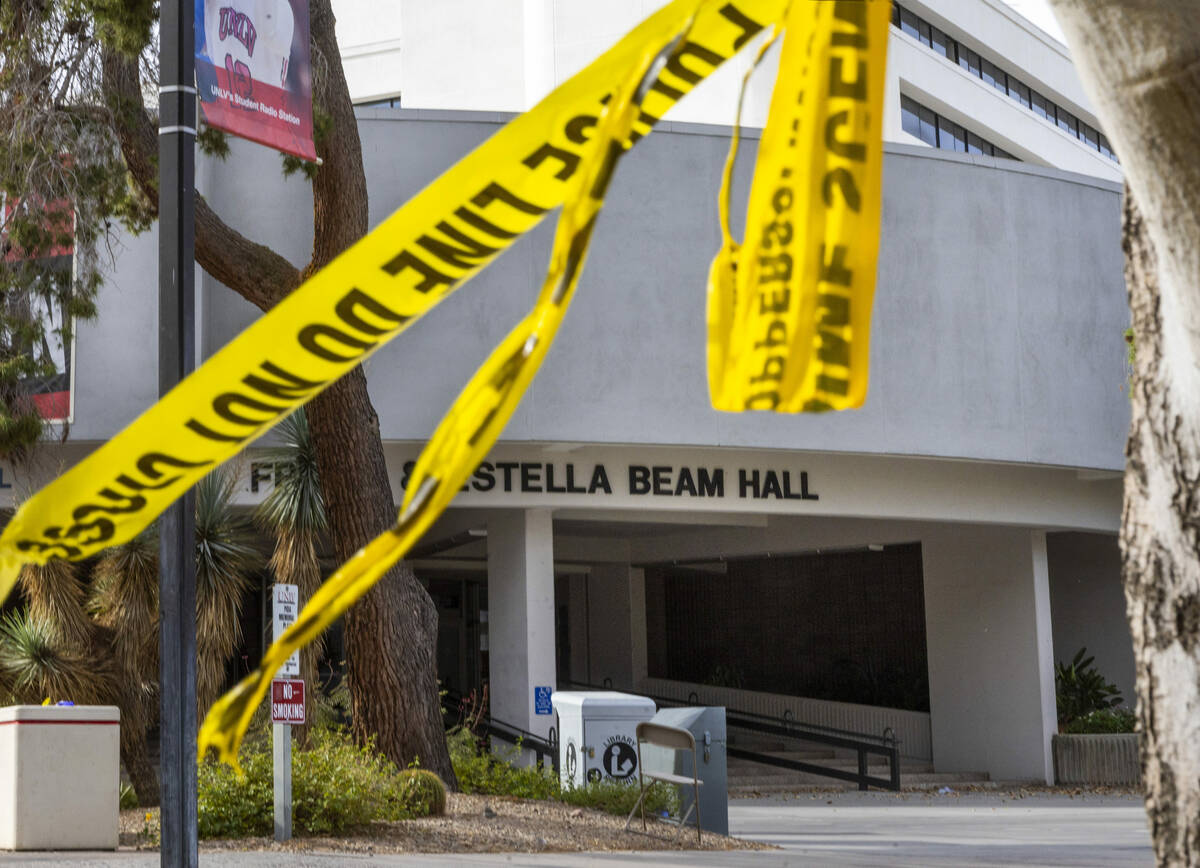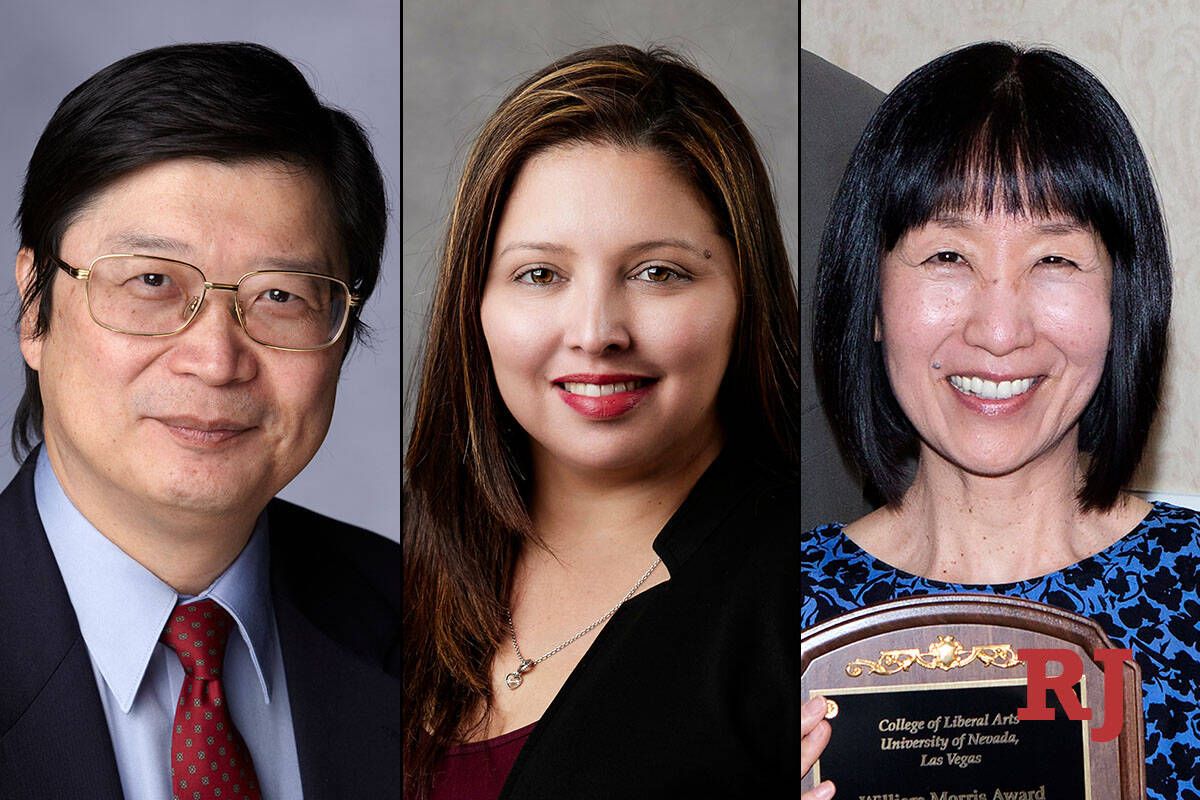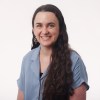‘It’s going to be traumatizing’: Experts share insights into aftermath of UNLV shooting
Lori Haas knows firsthand what it’s like to be the family member of someone injured in a shooting on a college campus.
Her daughter Emily — then a 19-year-old sophomore — sustained two graze wounds to the back of her head during the 2007 mass shooting at Virginia Tech that killed 32 people.
“I used to say that she was one of the lucky ones until a good friend said to me, ‘I don’t think that getting shot is very lucky,’ ” said Haas, who’s now the advocacy manager for the Johns Hopkins Center for Gun Violence Solutions in Baltimore.
The trauma of being in a classroom as many of her classmates were killed or injured is a lot to deal with for a young adult, she said.
“It would be a lot to deal with for anyone,” Haas said. “We’re not prepared for that kind of trauma.”
A gunman killed three professors and seriously injured a fourth person in a shooting Wednesday on UNLV’s campus.
The three professors have been identified as Cha Jan “Jerry” Chang, a professor of management information systems; Patricia Navarro Velez, an assistant professor in the accounting department; and Naoko Takemaru, an associate professor of Japanese studies.
The shooting began inside Beam Hall, which houses the Lee Business School. Once outside, the suspect died in a shootout with law enforcement.
Authorities said the gunman was 67-year-old former business professor Anthony Polito, who had sought a job at the university.
In a Thursday letter to the university community, UNLV President Keith Whitfield wrote that what happened is “in many ways the realization of our greatest fear.”
What students, employees and campus visitors endured during the shooting and “the tense aftermath” is life-changing, he said, and he also shared available mental health resources.
He thanked first responders, saying they’re owed a “tremendous debt of gratitude.”
Whitfield wrote: “I won’t sugarcoat it. We are all hurting right now. But it’s in these trying times that we need to lean on one another for support.”
UNLV announced Friday that employees will work remotely for the rest of the calendar year. But some may be asked to work from campus, depending on their job position.
In-person final exams for this week were canceled. Faculty can offer an optional remote final exam or home project if students want to improve their grade.
Some professional schools within the university are exempt from the plan, and each will decide how to conclude the semester.
University graduation ceremonies Dec. 19 and 20 are proceeding as planned, but students have the option of walking in the spring instead.
Ron Avi Astor, a professor of social welfare at the University of California, Los Angeles, said Thursday that UNLV will need a lot of support for those who are grieving.
Astor, who is an expert on school safety and violence, said he hopes there will be memorials and vigils where people can gather as a community.
‘Lots of questions’
“Certainly in the aftermath of a campus or school shooting, there are lots of questions,” Haas said.
People want to evaluate what could have been done differently, and if there were any security concerns and enough resources to address them, she said.
“But from my perspective, not enough attention is given to the role that access to firearms plays,” Haas said.
A person in crisis needs to have their access to firearms limited, she said.
After a shooting, there is of course immediate concern for the families of those who were killed or injured, Haas said.
There are also people who were uninjured physically but were exposed to “horrific trauma,” such as witnessing someone being shot, she said.
And there needs to be consideration for those in the vicinity of the shooting, such as in a nearby classroom or building — many of whom were students — who feared for their lives, Haas said.
“We need to recognize the ripple effects of shootings,” she said.
Haas also said: “There is a sad reality that there is a club, so to speak, that nobody wants to be a part of,” which is the loved ones of those killed or injured in shootings.
There’s immense support from those people, she said, toward those affected by the UNLV tragedy.
‘It’s going to be traumatizing’
Mark Kaplan, a professor emeritus of social welfare at UCLA, said Thursday that in an immediate sense, there’s a need to provide counseling to UNLV students.
For every professor who was killed, there are students in their classes who are likely profoundly affected by it, he said.
Kaplan, an expert on gun violence, also said that faculty shouldn’t be overlooked.
“This is going to send shock waves through the campus,” he said.
Kaplan created an undergraduate class at UCLA on firearm violence prevention policy in direct response to a 2016 murder-suicide on the university’s campus.
College and university campuses nationwide remain relatively open and there’s very little security, he said, noting it’s rare to have a security guard at the entrance to buildings.
“That’s of some concern,” he said.
Kaplan also said that there’s a lot of emphasis on student welfare, but faculty wellbeing needs to be addressed as well.
There are stressors in academia — including the need to get tenure — and sometimes universities aren’t good at handling the emotional toll, he said.
Dinur Blum is a sociology and criminology lecturer at California State University, Los Angeles, who researches the social causes and prevention of mass shootings in the United States.
He and Christian Jaworski co-authored the 2021 book, “Critical Mass: Understanding and Fixing the Social Roots of Mass Shootings in the United States.” They started their research in 2012.
Blum said Thursday about the aftermath of the UNLV shooting: “It’s going to be traumatizing.”
People assume that schools are safe places and that they’re in a protective bubble, he said.
Blum also said that a 67-year-old perpetrator is “way beyond the norm” in terms of age, noting they tend to be between ages 18 and 30.
But the idea of a shooting as revenge over not getting something that someone wants is fairly common, he said.
While doing research, Blum said they found that it’s very common that it’s daily stressors that push people over the edge. And when people don’t have a support network, they may resort to violence, he said.
He said that in the book, he and his fellow author wrote that there’s a need for more counselors in schools — both K-12 and universities — as well as in workplaces and walk-in clinics.
The problem is that therapy is expensive and for a lot of people, it’s out of their budget, Blum said.
Collectively, there’s a need to start using county and state taxes to fund more therapists, he said.
As for college campus security upgrades that may be implemented after a shooting, Blum said he understands why those measures are taken.
The problem is that it’s “a lot of theater” and while it makes it harder for someone to act on their anger, it’s not doing anything to lower their anger levels, he said.
Every time a shooting happens, it’s a national problem, Astor said.
He also noted that while shootings create terror, the vast majority of Americans are not dying in those shootings.
And school safety literature — both for kindergarten through 12th grades and college — shows that people have huge anxiety about getting shot while at school, but many people rate their own schools as very safe, he said.
Contact Julie Wootton-Greener at jgreener@reviewjournal.com. Follow @julieswootton on X.



